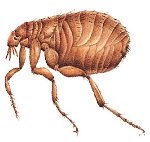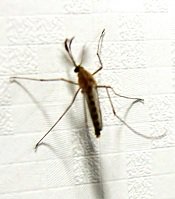Worms in dogs stool?
"The 5 dog worms types"

There are 5 common varieties of worms in dogs: roundworms, hookworms, tapeworms, whipworms, and heartworms. With the exception of heartworms, all these worms reside in the intestines. These intestinal parasites either live off the dog’s blood or steal nutrients from food being digested.
Common dog worms
Roundworms, the most common worm, can be transmitted in utero, through mother’s milk, or through direct ingestion. The eggs hatch and mature while free floating in the intestines, consuming digested food. They have a cooked spaghetti-like appearance and can grow up to 7 inches long.
If left untreated, roundworms can become so numerous causing an intestinal blockage. A sever infection will result in diarrhea, vomiting, and weight loss. Remember hand hygiene is crucial with this infestation because the sticky eggs can be transmitted to humans.
Hookworms (Hook worms)
Hookworms can also be spread to humans. Unlike roundworms though, hookworms cannot be seen by the naked eye. An infestation can occur from ingestion, direct entry through the skin, or by nursing from an infected mother. It takes about 17 days from migration to maturation. Once in the intestines they attach there and feed on the dog’s blood.
Diagnosing hookworms can be done with a fecal flotation test done by your vet once the hookworms start laying eggs. In the meantime watch for symptoms such as anemia, bloody diarrhea, weight loss or pneumonia. Detection is difficult and dependent on the worms lifecycle. Because of this puppies can die before these worms are ever found.

Tapeworms (Tape worms)
Tapeworms on the other hand are easily spotted and treated. These worms in dogs are segmented and as they grow the older segments drop off. These segments are passed in the stool, found around the dog’s anus, or in his bedding. Broken segments resemble grains of rice and interestingly enough contain their own digestive and reproductive systems, along with thousands of eggs.
Flea preventive is a must in preventing tape worms in dogs. Infected fleas are eaten and digested and then a tiny tapeworm is released. It travels to the intestines where it flattens itself out against the intestinal wall consuming digested food. Symptoms of a severe infestation include abdominal pain, vomiting, weight loss, and itching around the anus.
Find Everything You Need For Your Pet at PETCO.com!
Whipworms (Whip worms)
Whipworms are similar to hookworms because they attach to the intestinal wall and consume their host’s blood. Symptoms are dependent upon the size of the infestation. Heavier infestations will exhibit bloody diarrhea stools, large amounts of mucus with the stool, anemia and weight loss.
These worms do not pass a lot of eggs in the stool making them difficult to diagnose. Once the eggs are passed they need to remain in the soil for a month before they can mature. After that month and once the eggs are ingested it takes about three months for the larvae to mature. Because of this lifecycle these are the one of the hardest worms to treat.

Dog heart worms
Heartworms are also difficult to treat but at least these are easily preventable. Dogs can contract heartworms by being bitten by a contaminated mosquito. Warm climate residents with a prevalent mosquito population should consider adding a blood test to their dog’s annual physical. This test is the only way to verify infestation of heartworms in dogs in the early stages.
As these worms grow they clog your dogs heart and lungs leading to congestive heart failure. Symptoms include coughing, shortness of breath and lack of energy. If caught early enough a series of shots can be given to rid your canine of these worms but these medications can be as toxic as the heartworms themselves. Prevention is the key.
As always, keep a close eye on your dog. If you notice behavior changes, skin or coat changes, changes in his diet or stool, or even his activity, these could all be symptoms of worms. Don’t delay; notify your vet immediately even if you don’t actually see any worms in your dogs stool. Prevention and early treatment is the key for all worms in dogs.








